
Red River is a 1948 American Western film, directed and produced by Howard Hawks and starring John Wayne and Montgomery Clift. It gives a fictional account of the first cattle drive from Texas to Kansas along the Chisholm Trail. The dramatic tension stems from a growing feud over the management of the drive between the Texas rancher who initiated it (Wayne) and his adopted adult son (Clift).
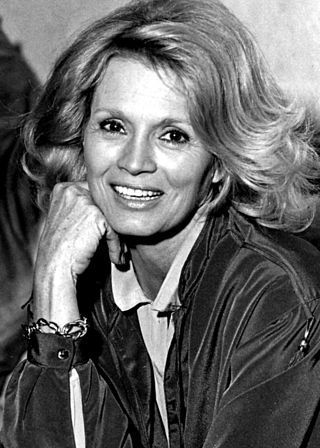
Angie Dickinson is a retired American actress. She began her career on television, appearing in many anthology series during the 1950s, before gaining her breakthrough role in Gun the Man Down (1956) with James Arness and the Western film Rio Bravo (1959) with John Wayne and Dean Martin, for which she received the Golden Globe Award for New Star of the Year.

Gwyllyn Samuel Newton Ford, known as Glenn Ford, was a Canadian-American actor. He was most prominent during Hollywood's Golden Age as one of the biggest box-office draws of the 1940s, 1950s, and 1960s, who had a career that lasted more than 50 years.

Rio Grande is a 1950 American romantic Western film directed by John Ford and starring John Wayne and Maureen O'Hara. It is the third installment of Ford's "Cavalry Trilogy", following two RKO Pictures releases: Fort Apache (1948) and She Wore a Yellow Ribbon (1949). Wayne plays the lead in all three films, as Captain Kirby York in Fort Apache, then as Captain Nathan Brittles in She Wore a Yellow Ribbon, and finally as a promoted Lieutenant Colonel Kirby Yorke in Rio Grande. Rio Grande's supporting cast features Ben Johnson, Claude Jarman Jr., Harry Carey Jr., Chill Wills, J. Carrol Naish, Victor McLaglen, Grant Withers, the Western singing group the Sons of the Pioneers and Stan Jones.

Dean Jagger was an American film, stage, and television actor who won the Academy Award for Best Supporting Actor for his role in Henry King's Twelve O'Clock High (1949).
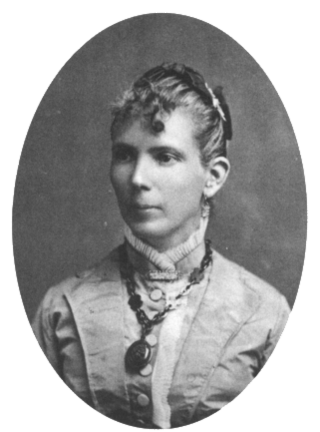
Larcena Pennington Page, born Larcena Ann Pennington, was an American pioneer known for surviving a kidnapping by Apache as a young married woman of 23 years old in present-day Arizona. Left for dead and unable to stand, she crawled 15 miles (24 km) over the next sixteen days to reach safety.

Nevada Smith is a 1966 American Western film directed by Henry Hathaway and starring Steve McQueen, Karl Malden, Brian Keith, Arthur Kennedy and Suzanne Pleshette. The film was made by Solar Productions in association with and released by Paramount Pictures.

The Battle of Apache Pass was fought in 1862 at Apache Pass, Arizona, in the United States, between Apache warriors and the Union volunteers of the California Column as it marched from California to capture Confederate Arizona and to reinforce New Mexico's Union army. It was one of the largest battles between the Americans and the Chiricahua during the Apache Wars.
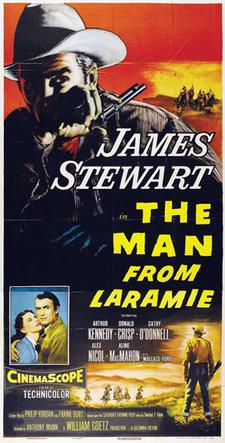
The Man from Laramie is a 1955 American Western film directed by Anthony Mann and starring James Stewart, Arthur Kennedy, Donald Crisp, and Cathy O'Donnell.

Cimarron is a 1960 American epic Western film based on the Edna Ferber novel Cimarron. The film stars Glenn Ford and Maria Schell and was directed by Anthony Mann and Charles Walters, though Walters is not credited onscreen. Ferber's novel was previously adapted as a film in 1931; that version won three Academy Awards.

Seven Men from Now is a 1956 American Western film directed by Budd Boetticher and starring Randolph Scott, Gail Russell and Lee Marvin. The film was written by Burt Kennedy and produced by John Wayne's Batjac Productions.

Hondo is a 1953 Warnercolor 3D Western film directed by John Farrow and starring John Wayne and Geraldine Page. The screenplay is based on the 1952 Collier's short story "The Gift of Cochise" by Louis L'Amour. The book Hondo was a novelization of the film also written by L'Amour, and published by Gold Medal Books in 1953. The supporting cast features Ward Bond, James Arness and Leo Gordon.
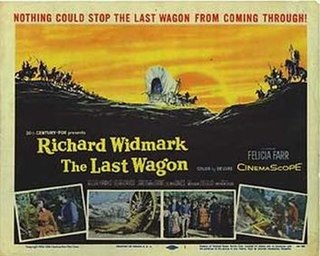
The Last Wagon is a 1956 American CinemaScope western film starring Richard Widmark. It was co-written and directed by Delmer Daves and tells a story set during the American Indian Wars: the survivors of an Indian massacre must rely on a man wanted for several murders to lead them out of danger.
The Battle of the Clouds was a failed attempt to delay the British advance on Philadelphia during the American Revolutionary War on September 16, 1777, in the area surrounding present day Malvern, Pennsylvania. After the American defeat at the Battle of Brandywine, the British Army remained encamped near Chadds Ford. When British commander William Howe was informed that the weakened American force was less than ten miles (16 km) away, he decided to press for another decisive victory.

The Battle of Yellow House Canyon was a battle between a force of Comanches and Apaches against a group of American bison hunters that occurred on March 18, 1877, near the site of the present-day city of Lubbock, Texas. It was the final battle of the Buffalo Hunters' War, and was the last major fight involving the United States and Native Americans on the High Plains of Texas.
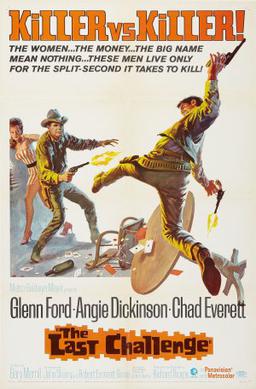
The Last Challenge is a 1967 American Western in Panavision, produced and directed by Richard Thorpe. The film starred Glenn Ford and Angie Dickinson and centered around a town sheriff contending with his reputation as the "fastest gun in the West." It is also known under the titles of Pistolero and The Pistolero of Red River.
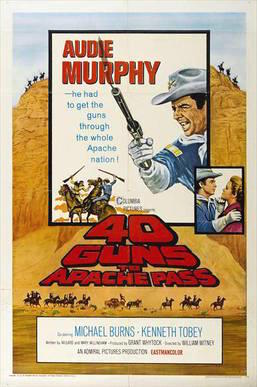
40 Guns to Apache Pass is a 1967 American Western film directed by William Witney and starring Audie Murphy.

The White massacre was an engagement between American settlers and a band of Utes and Jicarilla Apaches that occurred in northeastern New Mexico on October 28, 1849. It became notable for the Indians' kidnapping of Mrs. Ann White, who was subsequently killed during an Army rescue attempt a few weeks later.
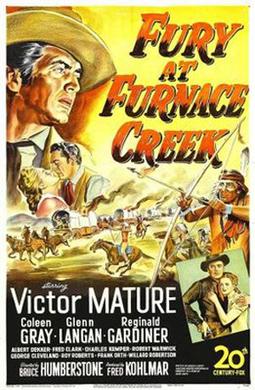
Fury at Furnace Creek is a 1948 American Western film directed by H. Bruce Humberstone and starring Victor Mature, Coleen Gray, Glenn Langan, and Reginald Gardiner.

Old Overland Trail is a 1953 American Western film directed by William Witney and written by Milton Raison. The film stars Rex Allen, Slim Pickens, Roy Barcroft, Virginia Hall, Gil Herman and Wade Crosby. The film was released on February 25, 1953, by Republic Pictures.



















